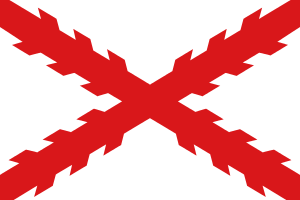Manuel Rojo del Río y Vieyra
| Su Excelencia Reverendísima Manuel Antonio Rojo del Río y Vieyra | |
|---|---|
| Arzobispo de Manila | |
 Manila | |
| See | Manila |
| Installed | July 22, 1759 |
| Term ended | January 30, 1764 |
| Predecessor | Pedro José Manuel Martínez, O.F.M. |
| Successor | Sancho de Santa Justa |
| Orders | |
| Consecration |
January 29, 1748 by Manuel José Rubio y Salinas |
| Personal details | |
| Birth name | Manuel Antonio Rojo del Rio y Vieyra |
| Born |
September 24, 1708 Tula de Allende, Viceroyalty of New Spain (Mexico) |
| Died |
January 30, 1764 (aged 55) Manila, Captaincy General of the Philippines |
| Nationality |
|
| Denomination | Roman Catholic |
| Archbishop Manuel Antonio Rojo del Río y Vieyra | |
|---|---|
| Governor-General of the Philippines | |
|
In office July 1761 – January 30, 1764 | |
| Monarch | Charles III of Spain |
| Preceded by | Bishop Miguel Lino de Ezpeleta |
| Succeeded by |
Dawsonne Drake (in Manila) November 2, 1762 Simón de Anda y Salazar January 31, 1764[1] |
| Military service | |
| Battles/wars | Seven Years' War |
| Styles of Arzobispo Manuel Rojo del Río y Vieyra | |
|---|---|
.svg.png) | |
| Reference style | Monseñor |
| Spoken style | Su Excelencia Reverendísima |
| Religious style | Reverendísimo |
Manuel Antonio Rojo del Río y Vieyra (September 24, 1708 – January 30, 1764)[2] was a Mexican (originally Spanish Criollo) friar who served as the 16th Archbishop of Manila and was Governor-General of the Philippines at the commencement of the 1762–1764 British occupation of the Philippines.
Early life
Rojo del Río was born in Tula, Mexico on September 24, 1708. On 1758, he was consecrated archbishop of the Archdiocese of Manila.[3]
On May 31, 1759, the death of Governor-General Pedro Manuél de Arandía left the position vacant. Bishop Miguel Lino de Ezpeleta of the Archdiocese of Cebu succeeded him as well as becoming acting Archbishop of Manila.[4] On 22 July 1759, Rojo del Río was enthroned as Archbishop of Manila. In 1761, a royal decree from Spain ruled that Rojo del Río replace Ezpeleta to become Governor-General.[5]
Del Río died in office on 20 January 1764.
Governorship
"Albeit he had the gift of knowledge, he had no judgment, especially in matter military, to which he was hostile and negative, since this was an area outside his profession and character." This was to prove fatal during the Battle of Manila (1762).[6]
See also
References
- ↑ Anda was the lieutenant governor since the day before the fall of Manila to the British on October 4, 1762. The British installed Drake as governor in November. They also recognized Rojo's powers as president of the Real Audiencia until his death on January 30, 1764. After the death of Rojo, and wanting to leave the Philippines, the British unsuccessfully negotiated with Anda to recognise him as Governor-General of the Philippines. They never recognised him as such, but instead following the orders of the king of Great Britain and the king of Spain when their despatches arrived together, recognised de la Torre as Rojo's successor as Spanish governor-general.
- ↑
- ↑ "Archbishop Manuel Antonio Rojo del Rio Vera †". Retrieved 2009-10-19.
- ↑ de Zuñiga, Joquin Martinez (1803). Historia de las Islas Filipinas (in Spanish). Sampaloc, Manila. pp. 597–600.
- ↑ "Manila Metropolitan Cathedral". Retrieved 2009-10-19.
- ↑ Tracy, Nicholas (1995). Manila Ransomed. University of Exeter Press. p. 33.
External links
| Episcopal lineage | |
| Consecrated by: | Archbishop Manuel José Rubio y Salinas |
| Political offices | ||
|---|---|---|
| Preceded by Miguel Lino de Ezpeleta |
Governor and Captain-General of the Philippines 1761-1764 |
Succeeded by Dawsonne Drake as British Governor of Manila 1762-1764 |
| Succeeded by Simón de Anda y Salazar as Governor-General of the Philippines 1764 | ||
| Religious titles | ||
| Preceded by Pedro José Manuel Martínez, O.F.M. |
Archbishop of Manila 22 July 1759–30 January 1764 |
Succeeded by Basilio Hernando de Santa Justa, Sch. P. |

.svg.png)